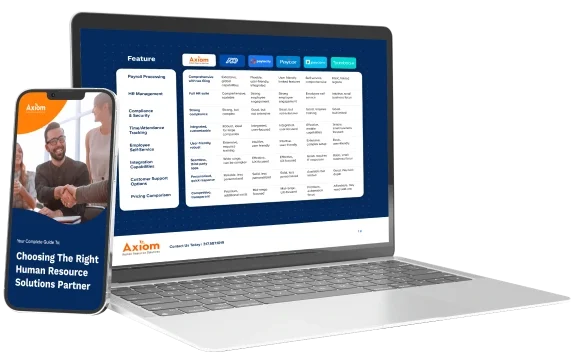 The annual Medicare Part D coordinated election period begins on October 15 and runs through December 7. Since creditable coverage disclosure notices are due to eligible employees prior to this period, it means October 14 is the last day to send those Medicare Part D notices.
The annual Medicare Part D coordinated election period begins on October 15 and runs through December 7. Since creditable coverage disclosure notices are due to eligible employees prior to this period, it means October 14 is the last day to send those Medicare Part D notices.
If you’re perfectly clear on what that entails and just needed the reminder, here’s a link to the CMS-provided model disclosure notices, in English and in Spanish.
For those who need a refresher course, here’s a quick review of creditable coverage and notification requirements:
What Creditable Coverage Means
For a group health plan’s prescription drug plan to be considered creditable, its actuarial value must be equal to or greater than the actuarial value of standard Medicare Part D prescription drug coverage. Generally, this means the expected amount of paid claims under your group health plan is at least as much as the expected amount of paid claims under the Medicare Part D plan.
Why Creditable Coverage Matters
Timely notice is especially important for employees whose coverage is non-creditable. Those employees, should they not enroll when first eligible for Medicare Part D, will most likely pay higher premiums if they choose to enroll later.
Who Needs to Know
Creditable coverage disclosure notices are due to any employee eligible for Medicare Part D who either applies for prescription drug coverage under the company plan or who is covered by that plan. Individuals are eligible for Medicare Part D if they:
- Are entitled to Medicare Part A or enrolled in Medicare Part B; and
- Live within the service area covered by a Medicare Part D plan.
Generally speaking, an individual is entitled to Medicare Part A once he or she actually has Part A coverage, not simply when he or she is first eligible. Individuals eligible for Medicare Part D may be active employees, disabled employees, COBRA participants, or retirees—as well as the covered spouses and dependents of any of these.
NOTE: Though a single notice is usually sufficient for the individual and all of his or her eligible dependents, a separate notice must be provided to any eligible spouse or dependent known to live at a different address from the covered individual.
When Notices Must Be Provided
In addition to the annual October 14th deadline, creditable coverage notices must be provided at a few other times (though simply providing the annual notice by the October 14th date will satisfy the first two of these instances):
- Prior to an individual’s initial Part D enrollment period
- Prior to the effective date of coverage for a Medicare-eligible individual who joins the plan
- When prescription drug coverage ends, or when its creditable status changes
- Upon the request of a beneficiary
Plan sponsors are also required to notify CMS whether their prescription drug coverage is creditable. This disclosure must be made on an annual basis, or whenever the creditable status of coverage changes. Creditable coverage disclosure notices must be provided to CMS:
- Within 60 days after the beginning of the plan year for which the entity is providing the form
- Within 30 days after the termination of the prescription drug plan
- Within 30 days after any change in the creditable coverage status of the prescription drug plan
Disclosure to CMS can only be provided through the form on the CMS Creditable Coverage Disclosure web page.
How Notices May be Provided
You have flexibility in how you provide the notices. For example, notices can be provided separately, or along with other plan participant materials, such as annual open enrollment materials.
Notices may be provided electronically as long as the following regulations are observed:
- The participant has the ability to access electronic documents at their place of work and access to the sponsor’s electronic information system on a daily basis as part of work duties
- The plan administrator uses appropriate and reasonable means to ensure that the system for furnishing documents results in actual receipt of transmitted information
- Notice is provided to each recipient, at the time the document is furnished, of the significance of the document
- The sponsor informs the participant of the responsibility to provide a copy of the electronic disclosure to Medicare-eligible dependents covered under the group health plan
- A paper version is available on request
Also, guidance from CMS says that a plan sponsor may provide an electronic disclosure to retirees if the Medicare-eligible individual has indicated they have adequate access to electronic information. But there are a few of conditions that must be met in this case.
They must have been informed of:
- Their right to a paper version
- The means to withdraw their consent and update address information
- Any software and hardware requirement to access and retain the disclosure notice
A valid email must be provided to the plan sponsor and consent from the individual submitted to the plan sponsor. Also, in addition to the personalized noticed sent to the individual’s email address, the notice (except for personalized notices) must be posted on the plan sponsor’s website, along with a link to the disclosure notice on the sponsor’s home page.
The Benefits of Planning Ahead
Though this list of conditions may seem daunting, you’ll reduce your headaches if you take advantage of the opportunity to combine these notices with your open enrollment process. If you find you need assistance, contact your Axiom team to schedule a consultation.
